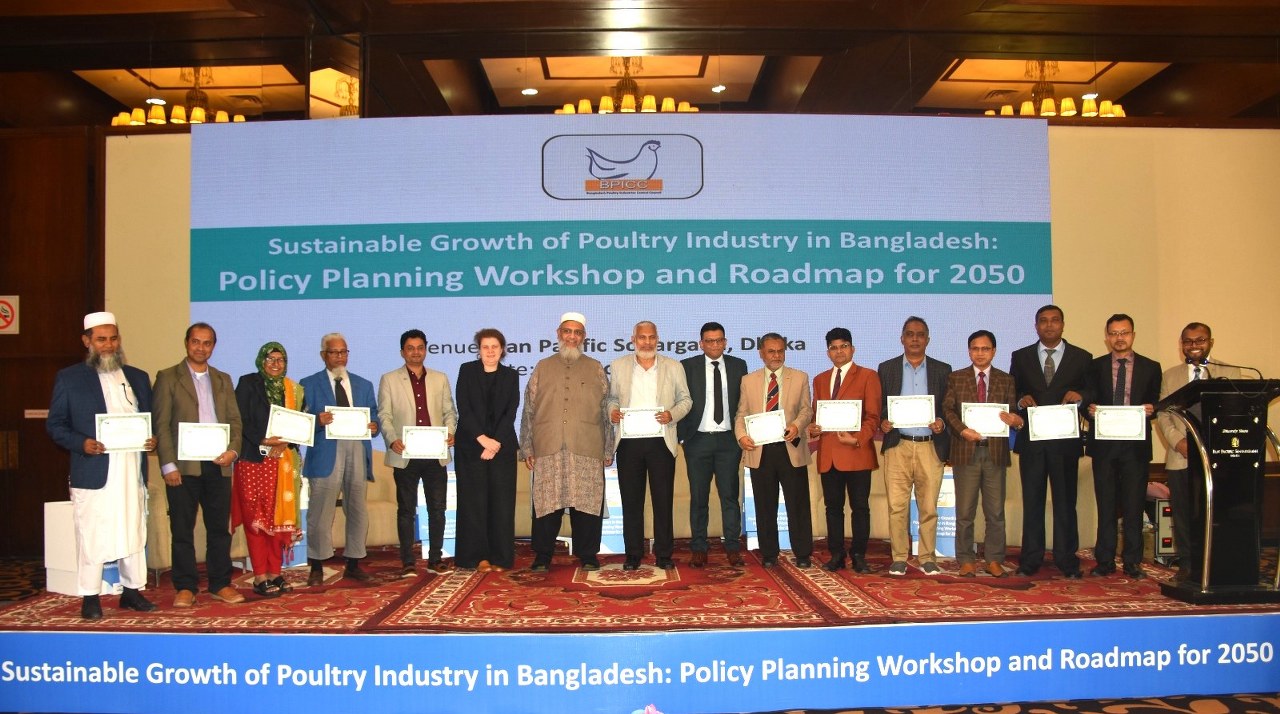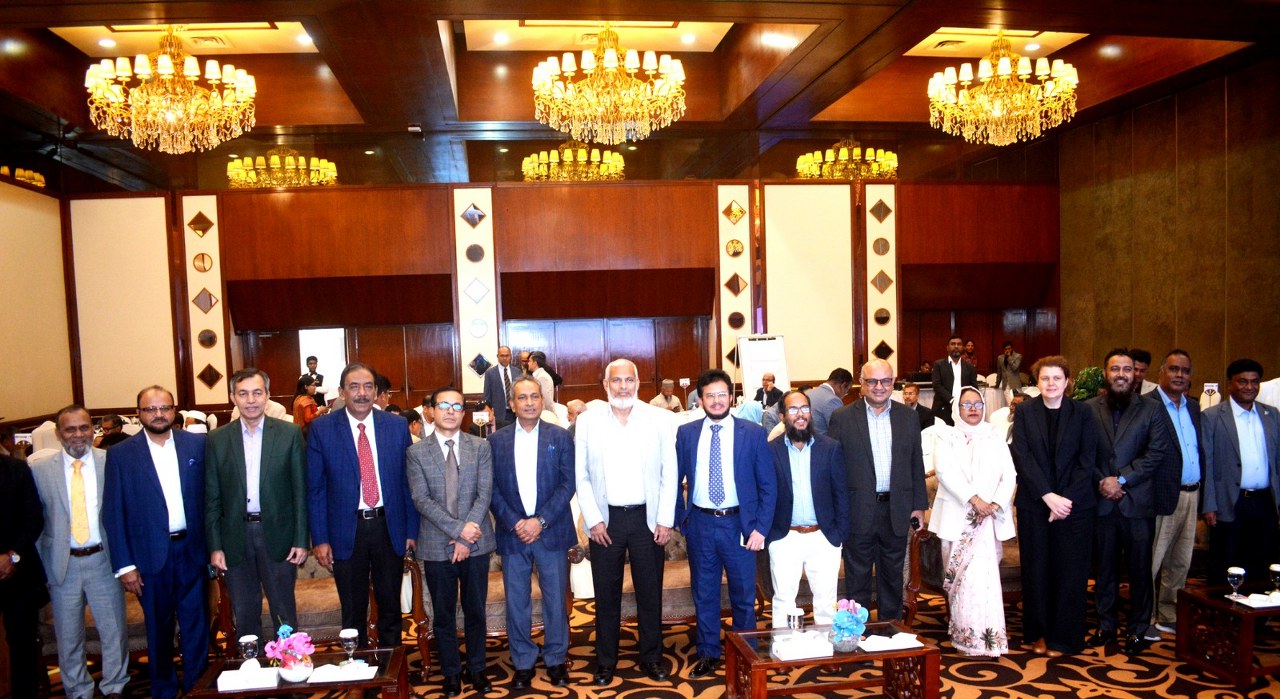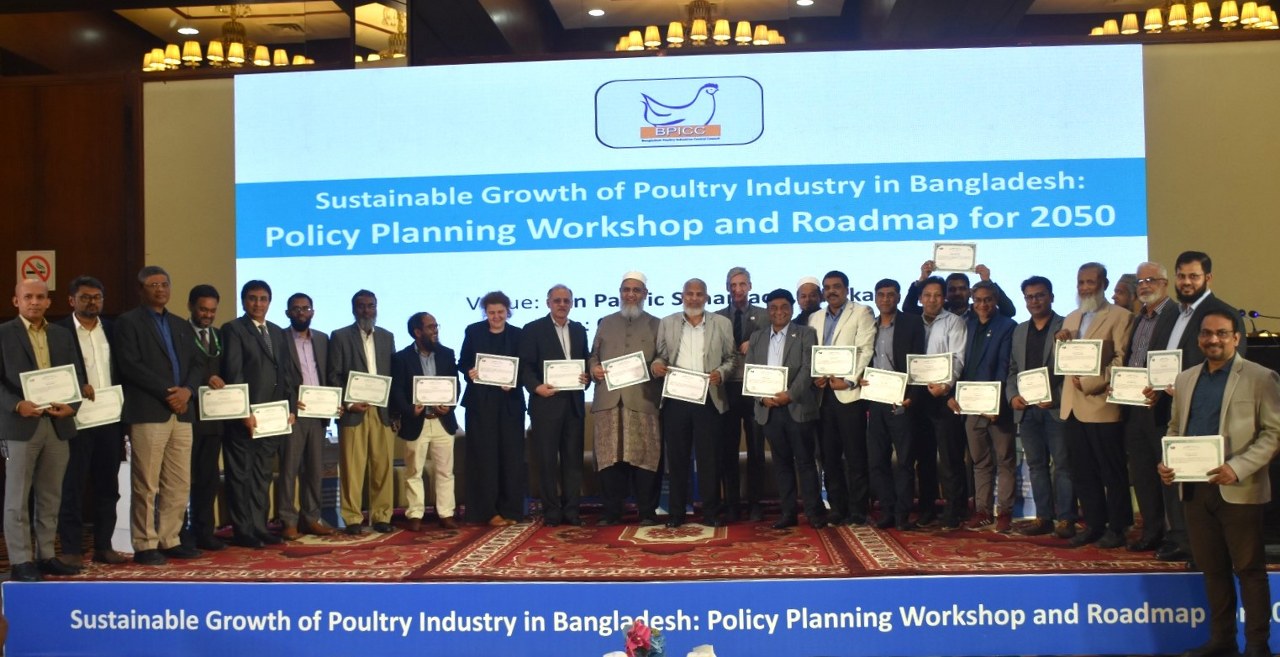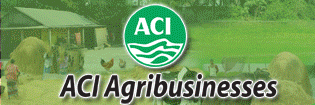 Agrinews24 Desk: The poultry industry of Bangladesh is poised for significant growth in the coming decades, driven by increasing population, rising incomes, and a growing preference for poultry products due to their nutritional value and affordability. To meet the demands of the future, the industry will need to adopt a sustainable, innovative and long-term plan, said Shamsul Arefin Khaled, president of the Bangladesh Poultry Industries Central Council (BPICC), an apex body of the poultry related associations. Mr. Khaled made this statement in a policy planning workshop titled “Sustainable Growth of Poultry Industry in Bangladesh and Roadmap for 2050”, which was organized, in Dhaka on 5 December, by BPICC with support from the Bangladesh Trade Facilitation Project (BTF).
Agrinews24 Desk: The poultry industry of Bangladesh is poised for significant growth in the coming decades, driven by increasing population, rising incomes, and a growing preference for poultry products due to their nutritional value and affordability. To meet the demands of the future, the industry will need to adopt a sustainable, innovative and long-term plan, said Shamsul Arefin Khaled, president of the Bangladesh Poultry Industries Central Council (BPICC), an apex body of the poultry related associations. Mr. Khaled made this statement in a policy planning workshop titled “Sustainable Growth of Poultry Industry in Bangladesh and Roadmap for 2050”, which was organized, in Dhaka on 5 December, by BPICC with support from the Bangladesh Trade Facilitation Project (BTF).
Mr. Khaled said, by following the roadmap, poultry industry can position itself for long-term success while addressing the critical challenges of sustainability, technology, trade, consumer health, and human capital development.
 The workshop was participated by representatives from the Ministry of Fisheries and Livestock, Department of Livestock Services, Bangladesh Livestock Research Institute, Academia from the Bangladesh Agricultural University, Sher-e-Bangla Agricultural University, and the poultry stakeholders.
The workshop was participated by representatives from the Ministry of Fisheries and Livestock, Department of Livestock Services, Bangladesh Livestock Research Institute, Academia from the Bangladesh Agricultural University, Sher-e-Bangla Agricultural University, and the poultry stakeholders.
Attending as Chief Guest of the Inaugural Session, A.T.M. Mostafa Kamal, Additional Secretary, Livestock-2 Wing of the Ministry of Fisheries and Livestock (MOFL) said, we have to increase production of egg and chicken meat to meet the future demand of our growing population. If we want to enter into the international market, we have to ensure traceability & food safety and comply with the buyers’ guidelines. If we want to reduce poverty, we have to create job opportunities. If we want to save our planet, we have to care about our environment and reduce carbon footprint. A long-term strategic plan can help both the government and private sector to grow systematically and sustainably. Mr. Kamal further said, we have to enhance our capacity & skills and conserve the indigenous breeds. He informed that the Bangladesh Livestock Research Institute (BLRI) has developed a hybrid of indigenous chicken that lays 170-180 eggs annually. The Roadmap for 2050 should uphold the rights of the marginalized farmer and accommodate their concerns, Mr. Kamal added.
 Dr. Md. Bayzer Rahman, Director (Administration), Department of Livestock Services (DLS) as well as the special guest of the ceremony said, DLS has been facilitating the growth of poultry sector. To attain sustainability the industry players should concentrate on improving efficiency of the supply chain, cost-effective productivity and ensure product quality and traceability.
Dr. Md. Bayzer Rahman, Director (Administration), Department of Livestock Services (DLS) as well as the special guest of the ceremony said, DLS has been facilitating the growth of poultry sector. To attain sustainability the industry players should concentrate on improving efficiency of the supply chain, cost-effective productivity and ensure product quality and traceability.
Dr. Shakila Faruque, Director General (T.C.), Bangladesh Livestock Research Institute (BLRI) said, as the arable lands are decreasing, we have to go for vertical integration and automation. She said, establishing a Poultry Research Institute and Regional Partnership to produce raw materials are demand of the time. She also expected an authentic and reliable poultry database which is vital for a roadmap.
Sarah Gilleski, Agricultural Attaché of the U.S. Embassy said that the U.S. government treasures relationship with the people of Bangladesh. Being a development partner, the U.S. government is providing support for creating business friendly environment. Poultry is a major protein supplier that demands market stability. The aimed roadmap will be beneficial for the industry as well as for the government to achieve nutrition sensitive economic growth, added Ms. Gilleski.
Michael J. Parr, Project Director, U.S. Bangladesh Trade Facilitation (BTF) said that the project represents a vital effort to enhance both regional and international trade in agricultural products for Bangladesh. By tackling the systemic barriers that have historically obstructed the efficient movement of agricultural trade at the nation’s ports, the BTF collaborates closely with the Government of Bangladesh to modernize and digitize import and export operations. The BTF is providing technical support to the poultry industry and thereby help setting priorities for achieving sustainability.
Moshiur Rahman, president of the World’s Poultry Science Association-Bangladesh Branch (WPSA-BB) said that the poultry sector is moving fast, therefore the government should respond quickly to the business needs. The acts and policies should be industry friendly. At present nine ministries are regulating poultry industry which is obstructing doing business. Mr. Moshiur proposed to bring everything related to this sector under the Ministry of Fisheries and Livestock. He said, we have to feed people and the protein should be affordable to all. The government should remove or reduce taxes and duties that are increasing production costs. Mr. Moshiur also stressed on waste management to prevent diseases and produce safe poultry meat and egg.
Dr. Md. Mahmudul H. Sikder, Professor, Dept. of Pharmacology, Faculty of Veterinary Science, Bangladesh Agricultural University (BAU), moderated the day-long session. Dr SM Zobaidul Kabir, Joint Secretary, Livestock-1 Branch, Ministry of Fisheries and Livestock (MOFL); Dr. A.B.M Khaleduzzaman, Director (Production), DLS; Dr. Md. Shahinur Alam, Chief Scientific Officer (LRI, CDIL), DLS; Md. Shariful Haque, Deputy Director (Farm), DLS; and Mohammad Nazrul Islam, General Secretary, Feed Industries Association Bangladesh (FIAB) performed as Team Leaders during Group Discussion Session. Fuad M Khalid Hossen, Deputy Chief of Party, BTF, presented an action plan to prepare a policy document and poultry roadmap for 2050; while Mahabubur Rahman, president, Breeders Association of Bangladesh (BAB) delivered the closing remarks.
 Agrinews24 কৃষির সাথে, কৃষকের পাশে
Agrinews24 কৃষির সাথে, কৃষকের পাশে





















